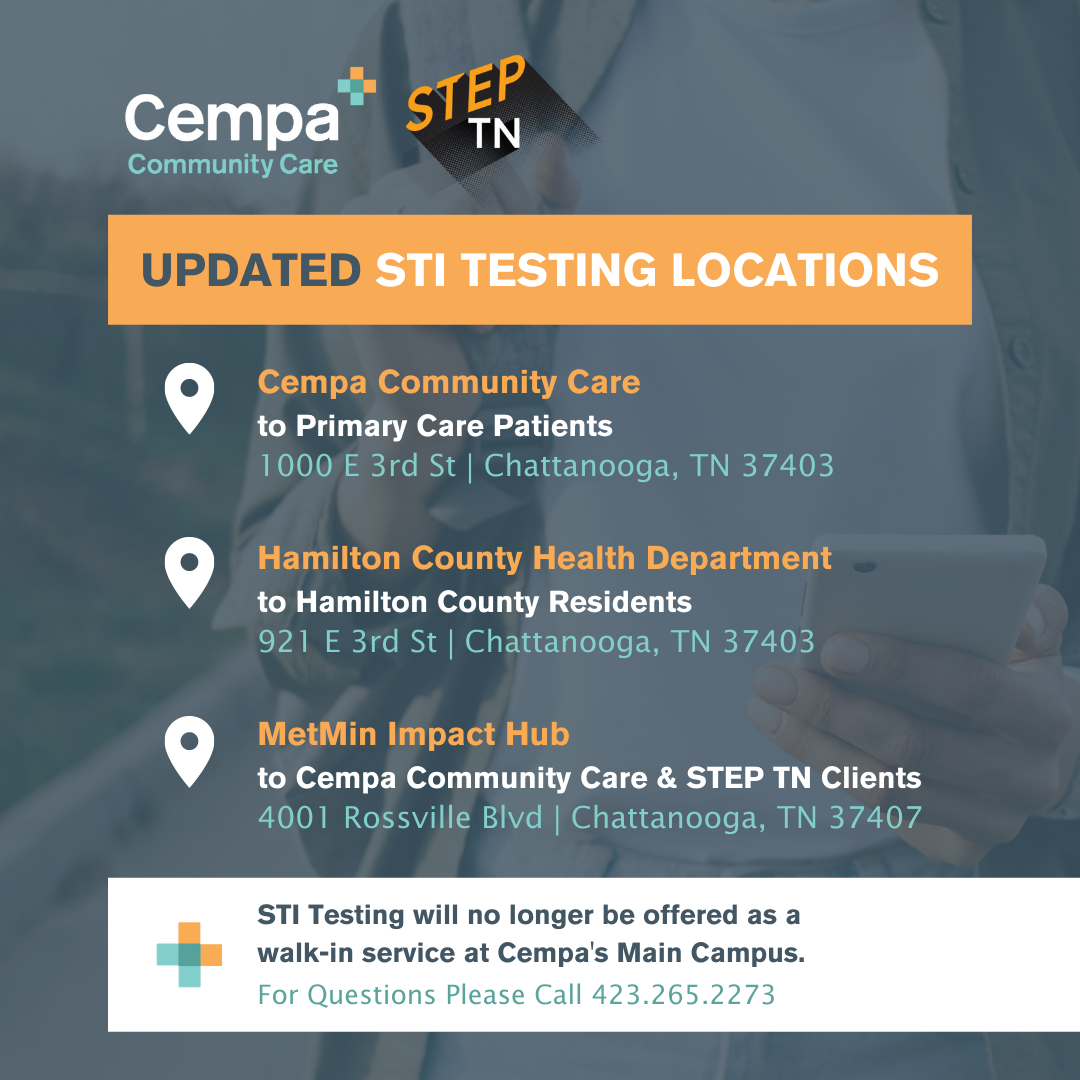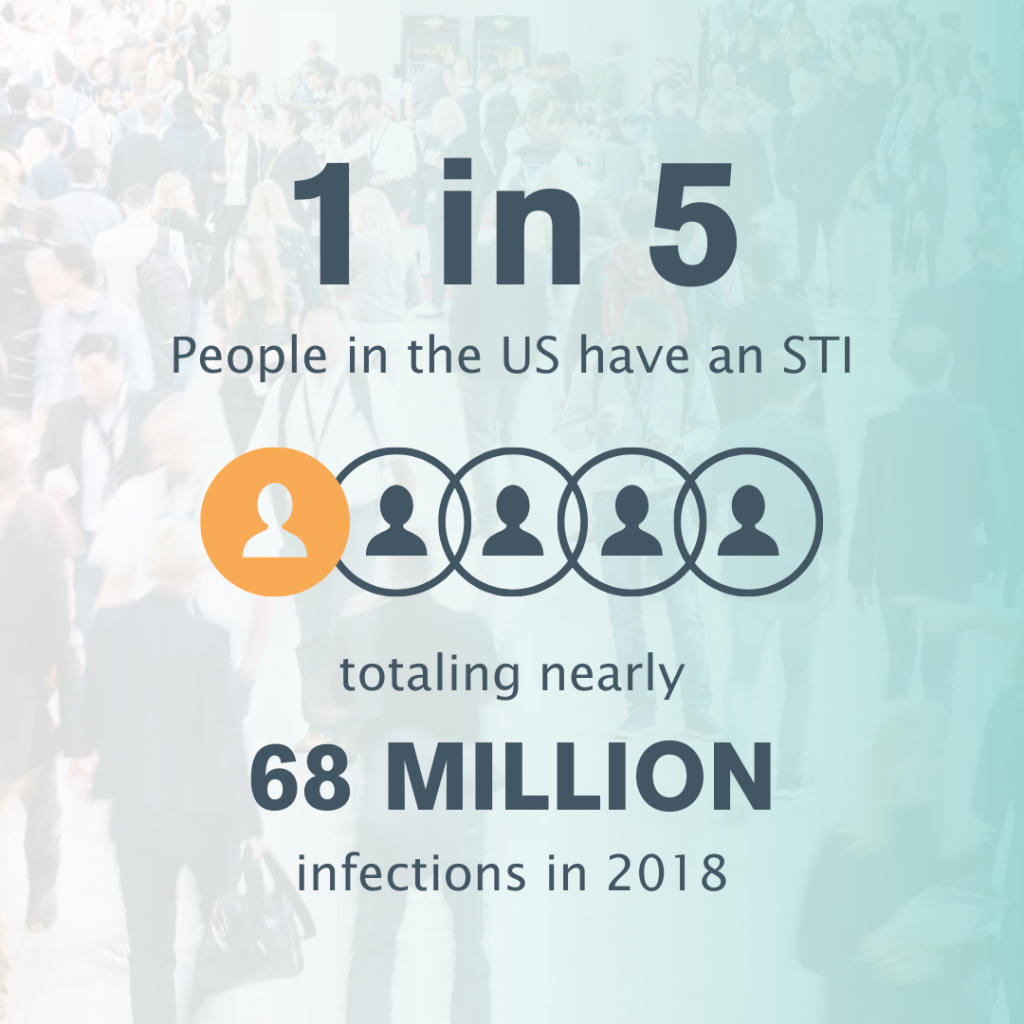
Take Action
Know Your Status & GET TESTED. It is recommended that all sexually active persons be tested for STIs regularly.
Know the Signs & Symptoms of an STI
Symptoms vary between chlamydia, gonorrhea, and syphilis – symptoms may even vary from person to person. Learn more about STI symptoms below.
If you have an STI, tell your sex partner(s). Both you AND your partner must get tested and treated. Wait to have sex and ask your provider when you can become sexually active again AFTER treatment.
Get Treated
Many STIs can be cured. Others cannot be cured, but all STIs can, and MUST be treated.
If you have recently tested positive for an STI, you may be at risk for HIV.
Cempa Community Care offers FREE walk-in HIV & HEP C Testing available at all locations.
Learn More About STIs

STIs are Sexually Transmitted Infections passed from person to person by intimate sexual contact.
An STI is transmitted by sexual contact during vaginal, anal, or oral sex; during genital touching; and in some cases, during childbirth. Some STIs can go undetected and be passed from person to person whether or not symptoms are present. To prevent the spread of STIs Know Your Status & GET TESTED regularly.
Abstinence is the best way to be protected; however, if you are currently sexually active, latex male condoms and dental dams (when used consistently and correctly) are the best from of protection and reduces your risk of transmitting an STI.
Birth control will NOT protect you from STIs. Barriers including condoms, female condoms, and dental dams are the only form of birth control that reduce your risk of transmitting an STI.
In most cases, vaccines are not available to protect against the various STIs. Vaccines are available for hepatitis B and some types of HPV. Ask your provider if these vaccines are right for you.
Chlamydia
1,579,885
New Cases Reported in 2020
Chlamydia is a common sexually transmitted infection for both men and women caused by infection with Chlamydia trachomatis.
Most people who have chlamydia have no symptoms.
Women’s symptoms may include: An abnormal vaginal discharge and/or a burning sensation when urinating.
Men’s symptoms may include: A discharge from their penis; a burning sensation when urinating; and/or pain and swelling in one or both testicles.
Both men and women may also experience rectal pain, discharge and bleeding.
Gonorrhea
677,769
New Cases Reported in 2020
Gonorrhea is a sexually transmitted infection for both men and women that infects the mucous membranes of the reproductive tract, including the cervix, uterus, and fallopian tubes in women, and the urethra in women and men. It can also infect the mucous membranes of the mouth, throat, eyes, and rectum.
Some people with gonorrhea may have no symptoms.
Women’s symptoms may include: Painful or burning sensation when urinating, increased vaginal discharge, and/or vaginal bleeding between periods.
Men’s symptoms may include: A burning sensation when urinating; a white, yellow, or green discharge from the penis; and/or painful or swollen testicles.
Both men and women may also experience rectal discharge, soreness and bleeding; anal itching; and/or painful bowel movements.
Syphilis
133,945
New Cases Reported in 2020
Syphilis is a sexually transmitted infection that is transmitted from person to person by direct contact with a syphilitic sore, known as a chancre. Chancres can occur on or around the external genitals, in the vagina, around the anus, or in the rectum, or in or around the mouth. Syphilis can occur during vaginal, anal, or oral sex, and during childbirth.
Symptoms appear between 10 – 90 days. Syphilis follows a progression of (3) stages that can last for weeks, months, or even years.


